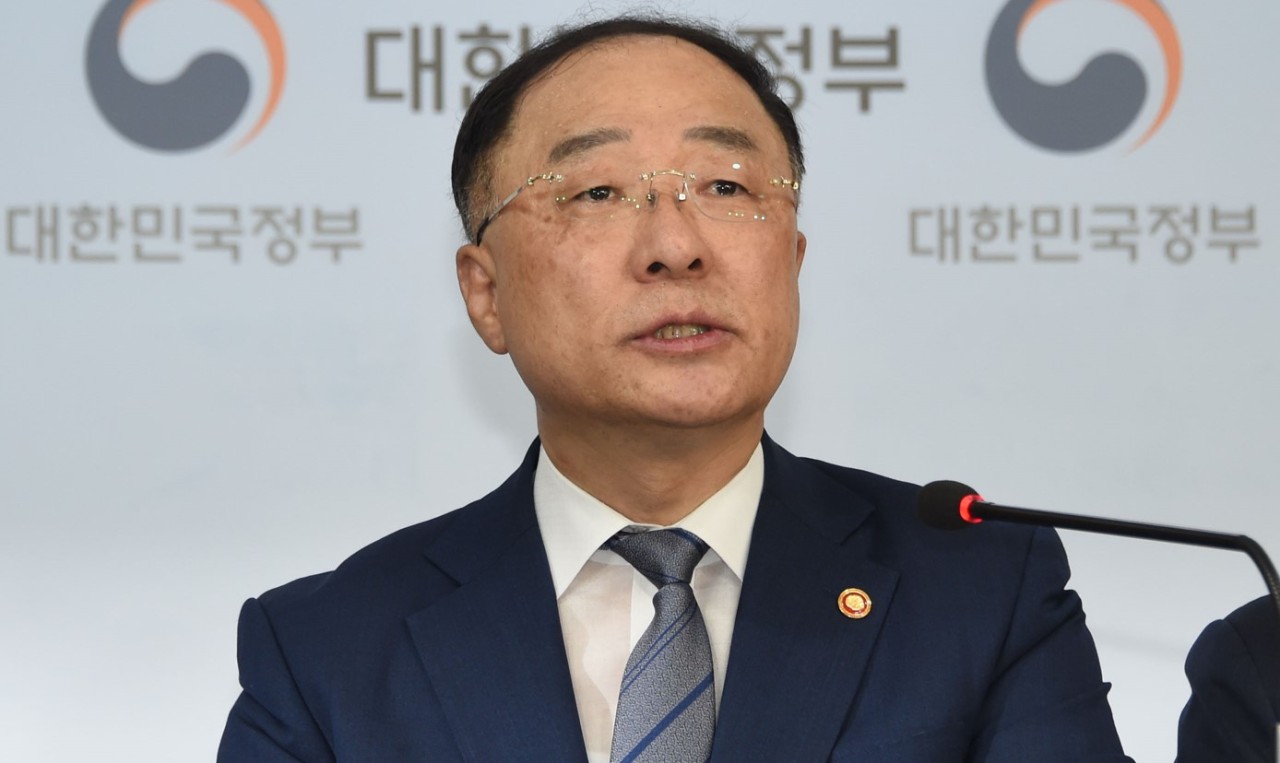S. Korea to exclude Japan from trade whitelist in retaliation
159 items to be hit by Japan’s trade curbs, government vows to fully support affected firms
By Shin Ji-hyePublished : Aug. 2, 2019 - 19:52
South Korea plans to exclude Japan from its own whitelist in response to Tokyo’s decision on Friday to remove as a preferred trading partner, as bilateral relations have slumped to the lowest levels since normalizing diplomatic ties in 1965.
“The government will resolutely take corresponding measures against Japan’s unjust economic retribution. ... As we have warned earlier, if (Japan) intentionally hits our economy, it must be prepared for greater damages,” President Moon Jae-in said in an emergency Cabinet meeting.
His remarks come as Japan resolved in the morning to remove Korea from its whitelist of 27 countries that receive preferential trade treatment. The revision will take effect Aug. 28.
“The government will resolutely take corresponding measures against Japan’s unjust economic retribution. ... As we have warned earlier, if (Japan) intentionally hits our economy, it must be prepared for greater damages,” President Moon Jae-in said in an emergency Cabinet meeting.
His remarks come as Japan resolved in the morning to remove Korea from its whitelist of 27 countries that receive preferential trade treatment. The revision will take effect Aug. 28.

Finance Minister Hong Nam-ki held a press briefing jointly with the ministers of science, industry and small and medium-sized enterprises in the evening, saying Korea will also tighten export controls on Japan, protect local industries and continue to convince the international community.
“We have been taking a stance that a repetition of counterattacks against each other is not conducive. However, we can no longer not take any action as Japan today decided to remove Korea from its list of trusted trading partners,” Hong said.
He went on to say that the government plans to “exclude Japan from its whitelist” while continuing to make efforts for a diplomatic solution.
Korea currently runs an export control system, which is similar to Japan’s whitelist. Japan is included among 29 countries that receive preferential trade treatment from Korea. The comprehensive plans and procedures on how to exclude Japan will be announced next week.
When asked whether this measure would not be subject to international laws, he said, “yes.”
Korea will also strengthen safety measures against Japan starting from the areas of tourism, food and waste for public safety. The details will also be announced soon after additional review.
As for local companies, which are expected to be hit by Japan’s trade restrictions, the government said it will “spare no efforts” to protect them.
Hong said there are a total of 1,194 strategic items related to the exclusion of the whitelist. When excluding items whose impact will be minimal, there are a total of 159 items, which will be affected by the trade curbs.
The government said the companies related to the 159 items would receive several support measures from the government. They will be given assistance in funds for research and development and in searching for alternatives. Around 270 billion won ($224 million) will be set aside for the technology development of key parts and materials.
They will also receive tax breaks and a grace period for tax audits. When asked if Samsung, which relies heavily on Japan’s parts and materials, would also receive tax-related benefits, Hong said the government has not specified a list of companies yet.
Korea will also continue to convince the international community of Japan’s measure. It plans to speed up the preparation to approach the World Trade Organization’s Dispute Settlement Body. It will also continue to make outreach efforts through key nations, international organizations and rating agencies.
Despite the ongoing trade spat, the government played down the impact of the measures on the economy.
Early this month, the government lowered this year’s economic growth rate due to the escalating trade dispute between the US and China and the slowdown in the global economy.
“At the time, we did not fully reflect Japan’s export restrictions. But, since repercussions from Japan’s export curbs have not yet been fully displayed, we will wait and see (for the time being). We will not lower the economic growth rate because of this matter,” Hong said.
Financial Services Commission Chairman Choi Jong-ku said the government would not interfere in the market. On Friday, the benchmark Kospi closed at 1,998.13, down 0.95 percent from the previous day, the first fall below 2,000 in around seven months.
“The fluctuation in the financial market has been rising. But, this is more due to external factors, such as a trade war between the US and China. Japan’s export curbs have already been reflected in the market,” Choi said. By Shin Ji-hye (shinjh@heraldcorp.com)









![[Hello India] Hyundai Motor vows to boost 'clean mobility' in India](http://res.heraldm.com/phpwas/restmb_idxmake.php?idx=644&simg=/content/image/2024/04/25/20240425050672_0.jpg&u=)









